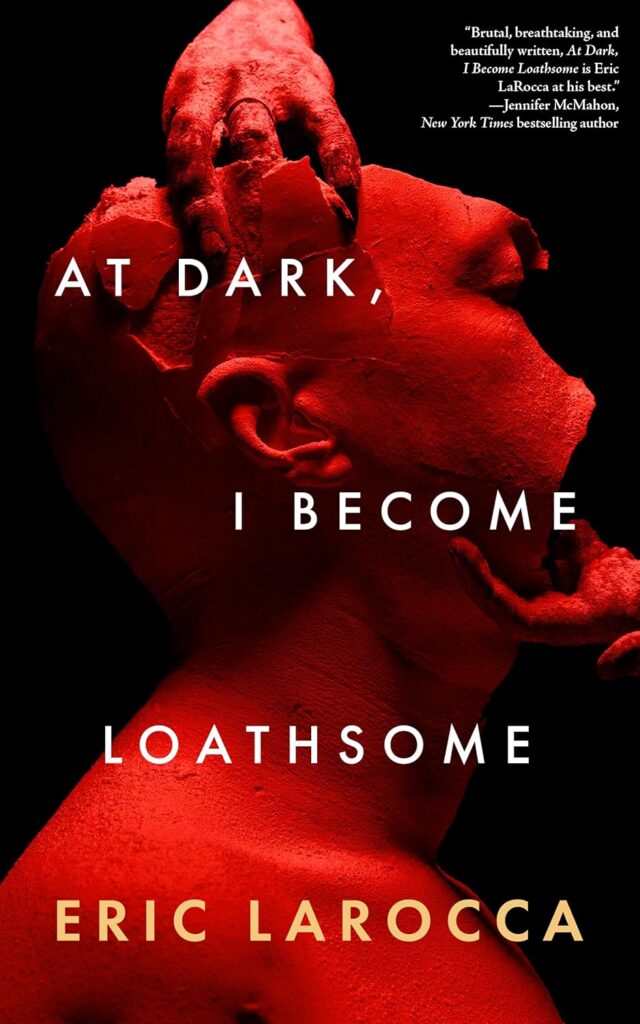There is something haunting about nighttime—a space where shadows deep dive into our psyche, drawing forth the parts of ourselves we’d rather keep hidden. I’m reminded of Eric LaRocca’s novel At Dark, I Become Loathsome—a story that unearths the grim undercurrents of grief, self-loathing, and the blurred morality that surfaces in darkness. The title almost feels like a mirror, doesn’t it? Reflecting what we often try to suppress when the world refuses to watch.
Table of Contents
The Weight of Darkness
Why is it that pain and uncertainty seem amplified at night? During the day, we’re busy—distracted, even. But as the noise of daylight fades, our minds wander where we didn’t give them permission to go. LaRocca’s tale embodies this uneasiness, exploring how darkness reveals truths we’d rather not face. The protagonist, Ashley Lutin, navigates his wife’s death and the baffling disappearance of his son. In his grief, he begins a terrifying ritual—burying people alive to force them into a deeper valuation of existence.
It’s grotesque, yet it begs the question: when life feels devoid of meaning, how far will we go to reclaim it? In a way, it traces back to the quiet, lonely angst that creeps in after the sun sets. Grief may not manifest in such extremes for us all, but the despair feels no less real. If you’re interested in how literature examines death and its human toll, you might find perspectives in Eric LaRocca’s larger body of work, including his award-winning Things Have Gotten Worse Since We Last Spoke.
A Reflection of Self-Loathing
When I think of self-loathing, it feels less like a single emotion and more like a conglomerate—a storm of past failures, haunting memories, and a steady undercurrent of inadequacy. In At Dark, I Become Loathsome, the refrain of the title is as much about the darkness outside as it is the inner turmoil that defines the protagonist.
For Ashley, the darkness acts as a trigger—the moment he no longer needs to keep up appearances. And maybe that’s the most chilling part. It’s not the buried bodies or the protagonist’s dissonant morality. It’s the realization that, in the absence of an audience, we might all crumble just a little.
Do you ever catch yourself saying, “I hate this version of me”? LaRocca dissects this sentiment in ways that feel hauntingly relatable, even exaggerated as they may be. His writing style, as much as readers describe it as disturbing, also sheds light on how dangerously cyclical self-loathing can become. If you’re curious about the unsettling, lyrical prose that has earned the author comparisons to the likes of Poppy Z. Brite and Clive Barker, Blackstone Publishing features more insight into LaRocca’s works, including At Dark, I Become Loathsome.
The Disturbing Tenor of Grief
Grief has a way of twisting time, doesn’t it? Moving too quickly and too slowly all at once. LaRocca’s book embraces this suspension of time—with Ashley’s character almost perpetually stuck in his mourning. The ritualistic burial practice he chooses to enact isn’t just a metaphor; it’s an act of desperation, both a cry for meaning and a macabre attempt at controlling the uncontrollable.
This exploration of grief hits a nerve—challenging readers to confront what they’d rather ignore. What would we do if stripped of all purpose? It’s painful, uncomfortable even, to imagine the ways loss can rewire our very existence. Yet, LaRocca’s lyrical—and often shocking—narrative captures that precise horror. If you’re looking for a breakdown of how deeply layered and unsettling this book is, Reactor Mag’s review goes into fascinating detail.
The Humanity in Horror
What stands out most, perhaps, is the humanity woven through LaRocca’s horrifying prose. While Ashley is undeniably unlikeable, his raw vulnerability seeps through the cracks of his actions. It’s not pretty; in fact, it’s grotesque. But it’s real. That’s something I think we forget when we approach horror as a genre—that it’s not just about the monsters and murders. It’s about amplifying the parts of ourselves that make us squirm.
I think that’s why At Dark, I Become Loathsome resonates so deeply. It doesn’t let us look away, no matter how much we want to. And in doing so, we’re forced to acknowledge the void that darkness, both real and metaphorical, represents. If you’re curious about how horror literature blurs the lines between fiction and a reflection of societal fears, Amazon offers a closer look here.
Final Reflections
Nightfall represents the end of something—a day reached its conclusion, the familiar dimmed. But for some, it’s also a beginning—as the outer world hushes, the inner one roars to life. That’s the space Eric LaRocca invites us into. Through Ashley’s heinous actions, we’re asked bigger, messier questions: What makes a man loathsome? What does grief sound like in the absence of words?
Maybe we carry pieces of Ashley’s darkness within us—not the rituals, of course, but the quiet resignation, that fleeting realization that self-loathing isn’t born in the shadows, but nurtured there. And just maybe, the biggest fear isn’t what lies in the dark. It’s that feeling we know it all too well.
If grappling with such themes intrigues you, or if darker tales with a focus on visceral human emotion are your thing, consider exploring more about Eric LaRocca’s At Dark, I Become Loathsome. The night might be waiting.

